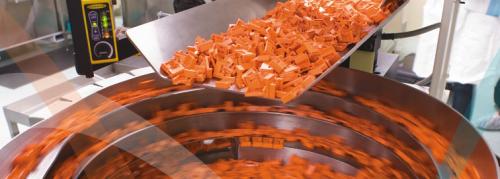Manufacturing is the engine that made America prosperous.
Modern manufacturing will play a pivotal role in our long-term economic vitality.
Welcome to GreatManufacturingStories.com.
Tessy Plastics: Innovation Drives Incredible Comeback
- 1-29-2014
- Categorized in: Innovation

In 2001, Tessy Plastics suffered a severe setback when its largest customer, Xerox, pulled out of the inkjet cartridge business. Overnight, the Elbridge, New York enterprise lost 40% of its sales. Revenue soon contracted further, when terrorist attacks sent the U.S. economy into a tailspin. Tessy had no choice but to lay off half of its 795 workers, and to rethink its business strategy. Roland Beck had just been promoted to president of the family owned business, and he feared for its future.
Fast forward a decade. In the space of 10 years, Tessy has entered new product lines, and revamped and expanded its operations in Elbridge. Moreover, it established a custom injection molding operation in Lynchburg, Virginia in 2007, and announced plans in January 2012 to invest $4.8 million to expand the Lynchburg operation, creating 60 more new jobs.
The foundation of Tessy’s revitalization was four key decisions: First, production workers were organized into work cells, each responsible for the operation and profitability of one or several manufacturing lines. This allowed employees to develop closer relationships with customers, better meeting their needs.
Second, Tessy scrapped its JIT operations, in favor of doing longer production runs and warehousing products until customers need them. This change eliminated the need for making hundreds of tool changes a week for small jobs.
Third, it moved from hand assembly to robotics. Tessy now retains nearly two dozen technicians who design, build and troubleshoot its machines, which make parts and in some cases finished products. Examples are Old Spice deodorant containers and the plastic sliders at the top of Hefty OneZip bags.
Fourth, realizing that they were losing money on half of their customers, Tessy dropped 19 of its 38 customers. It then sought out more profitable customer relationships, and moved deeper into serving the medical equipment industry, which needs plastic parts for many medical devices, engineered to strict tolerances in clean manufacturing environments.
Today, Tessy employs 800 in Elbridge, 300 in Shanghai, and 200 at the soon-to-expand plant in Lynchburg. According to Beck, the firm makes 20 million parts daily at its plants, which operate 24 hours per day. Beck visits employees on all three shifts, retaining a personal touch as the business grows. Tessy’s example of overcoming adversity through innovation makes it a Great Manufacturing Story.
Forum on Manufacturing
-
Manufacturing Challenge
What is the greatest challenge facing your company this year?
